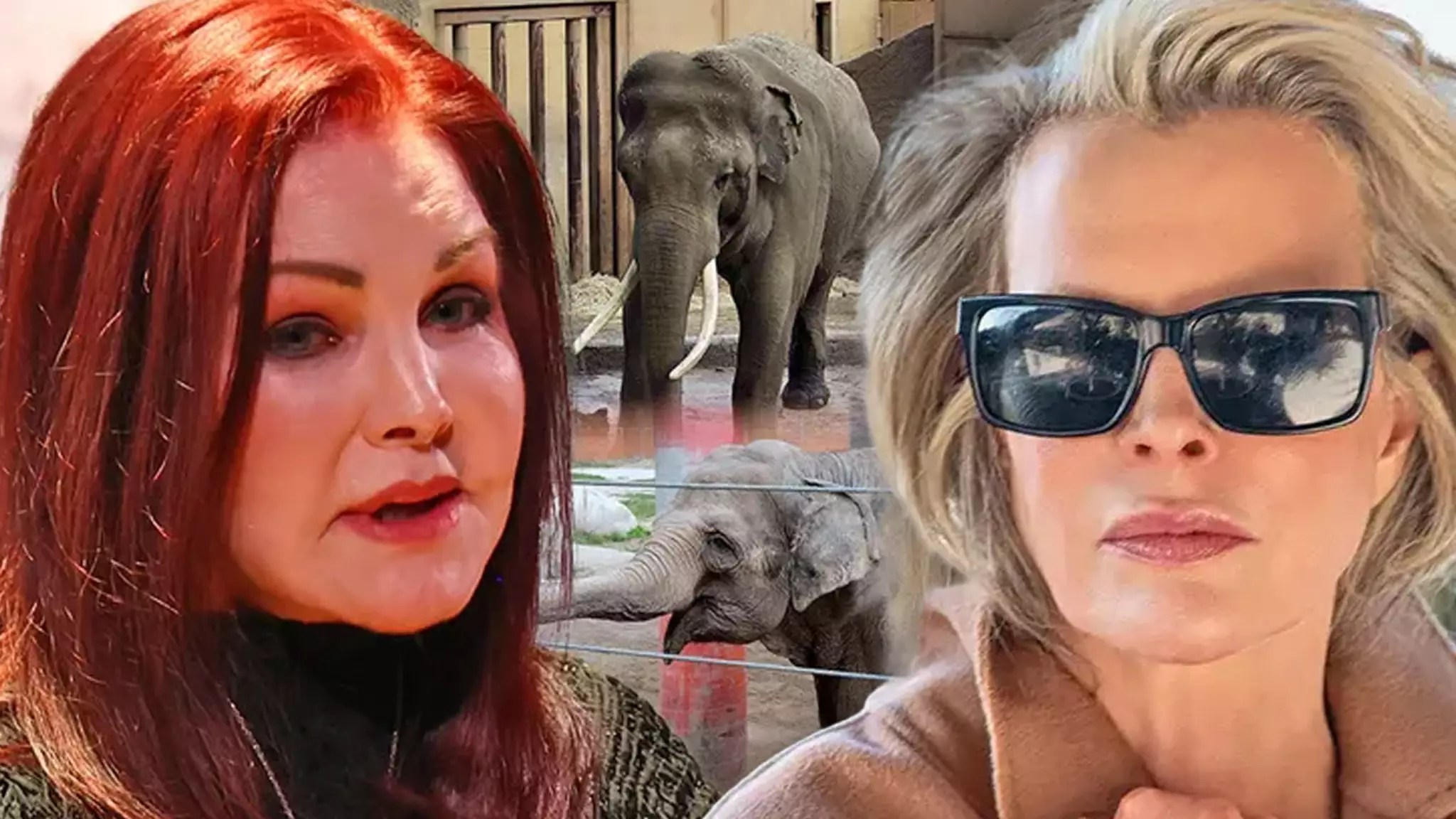The recent decision by the L.A. Zoo to transfer its last remaining Asian elephants, Tina and Billy, to the Tulsa Zoo has ignited a firestorm of criticism from prominent Hollywood figures. The overnight transfer, executed to sidestep potential protests, is viewed not only as a practical move, but as a morally questionable one—an assessment shared by several noted animal rights advocates. Among the loudest voices of dissent are Priscilla Presley and Kim Basinger, both of whom took to social media and news outlets to express their outrage over the treatment of the elephants. Their sentiments underline a growing concern about the ethical responsibilities involved in the captivity of wild animals and the duty of institutions like zoos to prioritize the well-being of their residents.
An Ethical Quandary: Captivity vs. Freedom
Presley and Basinger’s reactions reflect a broader ethical dilemma surrounding captivity in zoos. While some may argue that zoos play a crucial role in education and conservation, when it comes to animals like Tina and Billy, whose lives have been confined to enclosures for decades, their call for sanctuary becomes a question not just of space, but of dignity. Presley’s assertion that the elephants “deserved freedom,” and Basinger’s characterization of the transfer as “blatantly inhumane,” speak volumes about the prevailing perception that captivity, especially in environments that fail to meet natural needs, is not just unacceptable but also an affront to the very essence of the animals’ existence.
Political Accountability and Public Sentiment
The involvement of city officials, particularly Mayor Karen Bass, raises questions of accountability and the perceived disconnect between political decision-making and public sentiment. Basinger did not hold back, accusing Mayor Bass of lacking compassion and misusing her authority, which adds an emotional layer to this discourse. The public’s response to the mayor’s choices is worth examining; many citizens feel that local government should reflect community values, particularly concerning ethical treatment of animals. With a growing number of residents advocating for animal rights, this case exemplifies a significant rift between governmental decisions and grassroots movements.
Celebrity Support: A Collective Call for Change
Adding weight to the argument, a host of celebrities—including Cher, Alicia Silverstone, and Diane Warren—have joined Presley and Basinger in signing a letter to Mayor Bass urging for a more humane resolution for the elephants. This collaborative effort highlights not just the power of celebrity influence but also the collective moral obligation that stars feel to advocate for the voiceless, ultimately urging society to reconsider the status quo of animal captivity. Advocacy from individuals with significant public platforms can catalyze substantial changes in legislation and public perception, and this situation provides an opportunity to engage nationwide dialogues about animal rights.
Shattering the Status Quo
Crucially, activists like Presley and Basinger are emphasizing that this fight transcends any single instance of poor treatment; it’s an indictment of systemic issues surrounding animal welfare. Basinger’s hope to pass an ordinance preventing future instances of elephants in Los Angeles County is emblematic of a larger movement aiming not only for sanctuary but for legislative reform. Their shared frustration points to a collective understanding that true change requires not just outrage but actionable steps towards prevention and protection.
Moving Forward with Resolve
Despite experiencing a setback with the move of Tina and Billy to the Tulsa Zoo, both Presley and Basinger indicate that their fight is far from over. This resilience characterizes a growing network of advocates determined to ensure that the narratives surrounding wild animals in captivity shift towards compassion and dignity. The passionate cries echoing from Hollywood resonate with a burgeoning global awareness surrounding animal rights, signaling a crucial moment in which society must confront the moral implications of animal captivity. As activists continue to challenge the status quo, they invite us all to reflect on our collective responsibilities—not just as animal lovers, but as stewards of the planet who must advocate for a future free of inhumane treatment.







Leave a Reply